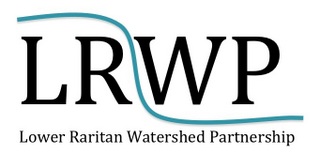Civic Science comes to PBS
Article by LRWP Board President Heather Fenyk
Wikipedia tells us that civic science or citizen science (CS; also known as crowd science, crowd-sourced science, volunteer monitoring or networked science) is “scientific research conducted, in whole or in part, by amateur (or nonprofessional) scientists. Citizen science is sometimes described as public participation in scientific research, participatory monitoring and participatory action research.”
The LRWP employs civic science to better understand the health of our watershed. Our volunteers engage in activities like water quality monitoring, soil sampling, pollinator counts and mapping of invasive and threatened/endangered species. The data our volunteers generate is a key input to our analyses and restoration prioritization.
While the LRWP’s mission centers on protecting, preserving and restoring habitat and biodiversity within our Lower Raritan Watershed, our civic science approach to data gathering speaks to another core purpose: by training community volunteers to monitor and report on the health of the environment we work to ensure that science, community engagement and environmental stewardship become a permanent part of the culture and identity of the Lower Raritan Watershed.
Want to learn more about citizen/civic science? Not only how it is used to characterize the health of our watersheds, track climate change and map oil spills, but also how it can improve emergency responses, help us understand how diseases spread, and keep our drinking water clean? Check out the new PBS mini-series sponsored by The Crowd and The Cloud. For a month of Thursdays this April, PBS will host a 4-part television series exploring citizen science, crowdsourcing, and mobile technology. Below we summarize the episodes in the series:
Even Big Data Starts Small
The crowd, using mobile tech, and the cloud contribute to science that saves lives. In this episode, you’ll hear stories of everyday people contributing data used for emergency management, researching Alzheimers, mapping oils spills, and more.
World Broadcast: April 6th at 9pm EST
(replayed at 9pm PST)
Citizens + Scientists
Citizen scientists track air pollution in Wyoming, test for lead in Philadelphia’s drinking water, fish for data in coldwater trout streams and report environmental crimes in China, using the “Black & Smelly Rivers” app. Hear all these stories and more in Episode 2.
World Broadcast: April 13th at 9pm EST
(replayed at 9pm PST)
Viral vs Virus
Real-time data helps track environmental triggers for asthma sufferers and citizens confront air pollution and rising asthma rates by collecting real time data. In this episode, explore how maps and apps can combat globalized disease from asthma to Zika.
World Broadcast: April 20th at 9pm EST
(replayed at 9pm PST)
Citizens4Earth
This episode explores a Year in the Life of Citizen Science. Counting birds with an app, surfers collecting ocean data while they ride the waves, volunteers surveying horseshoe crabs on the Delaware Bay, and butterflies wintering over in California.
World Broadcast: April 27th at 9pm EST
(replayed at 9pm PST)
